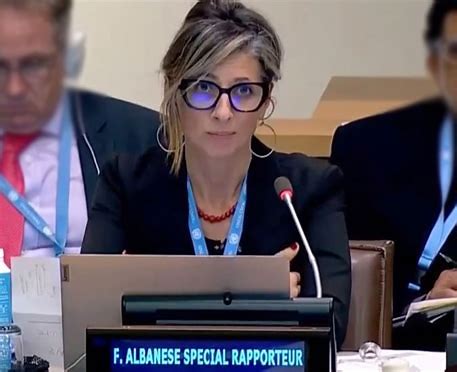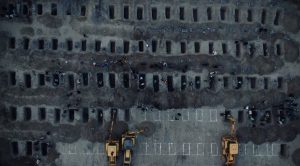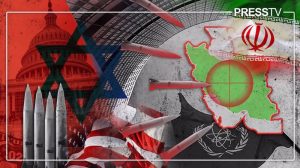“Apartheid Israel is targeting Gaza and the West Bank simultaneously, as part of an overall process of elimination, replacement, and territorial expansion,” said United Nations special rapporteur Francesca Albanese.
An independent United Nations expert warned Monday that “Israel’s genocidal violence risks leaking out of Gaza and into the occupied Palestinian territory as a whole” as Western governments, corporations, and other institutions keep up their support for the Israeli military, which stands accused of grave war crimes in the Gaza Strip and West Bank.
Francesca Albanese, the U.N. special rapporteur on the human rights situation in the illegally occupied Palestinian territories, said in a statement that “there is mounting evidence that no Palestinian is safe under Israel’s unfettered control.”
“The writing is on the wall, and we cannot continue to ignore it,” said Albanese, who released a detailed report in May concluding that there are “reasonable grounds to believe” Israel is guilty of genocide in Gaza.
Albanese’s new statement came as the Israeli military’s largest assault on the West Bank in decades continued into its second week. At least 29 Palestinians have been killed during the series of military raids, according toAl Jazeera, including at least five children.
“Apartheid Israel is targeting Gaza and the West Bank simultaneously, as part of an overall process of elimination, replacement, and territorial expansion,” Albanese said Tuesday. “The longstanding impunity granted to Israel is enabling the de-Palestinization of the occupied territory, leaving Palestinians at the mercy of the forces pursuing their elimination as a national group.”
“The international community, made of both states and non-state actors, including companies and financial institutions, must do everything it can to immediately end the risk of genocide against the Palestinian people under Israel’s occupation, ensure accountability, and ultimately end Israel’s colonization of Palestinian territory,” Albanese added.
Defense for Children International–Palestine noted Monday that “dozens of Israeli military vehicles” have “stormed” the West Bank city of Jenin over the past week as “Israeli forces deployed across the targeted refugee camps, seizing Palestinian homes to use as military bases and stationing snipers on the roofs of buildings, subjecting their residents to field investigations.”
“The military bulldozers began destroying the civil infrastructure in Jenin city and camp, which led to the destruction of the main water networks and power outage in several neighborhoods in Jenin and surrounding villages,” the group said. “Israeli forces besieged several hospitals in Jenin and impeded the movement of ambulances and paramedics.”
Israeli soldiers and settlers have killed more than 620 people in the occupied West Bank since October 7, on top of the roughly 40,800 killed by the Israeli military in Gaza.
Unlawful Israeli land seizures have also surged in the West Bank as settlers and soldiers wipe out entire Palestinian communities. The BBCreported Monday that, according to its own analysis, there are “currently at least 196 across the West Bank, and 29 were set up last year—more than in any previous year.”
Israel’s multi-day attack on the West Bank that began last week has intensified fears that unless there’s a permanent cease-fire, the assault on Gaza could expand to the rest of the occupied Palestinian territories and throughout the Middle East.
David Hearst, co-founder and editor-in-chief of Middle East Eye, wrote Monday that “even with the obvious reluctance of Hezbollah and Iran to get involved, all the ingredients are there for a much larger conflagration.”
“An Israel in the grip of an ultra-nationalist, religious, settler insurgency; a U.S. president who allows his signature policy to be flouted by his chief ally, even at the risk of losing a crucial election; resistance that will not surrender; Palestinians in Gaza who will not flee; Palestinians in the West Bank who are now stepping up to the front line; Jordan, the second country to recognize Israel, feeling under existential threat,” Hearst wrote.
For U.S. President Joe Biden or Democratic nominee Kamala Harris, he added, “the message is so clear, it is flashing in neon lights: The regional costs of not standing up to Netanyahu could rapidly outweigh the domestic benefits of being dragged along by him.”
James Zogby, president of the Arab American Institute, similarly argued Tuesday that “the U.S. must reverse course—and do so dramatically.”
“A long-overdue cut-off of U.S. arms to Israel and recognition of the Palestinian right to self-determination would provide exactly the shock to the system that is needed,” Zogby wrote. “It would force an internal debate in Israel, empowering those who want peace. It might also serve to send a message to the Palestinian people that their plight and rights are understood.”
These actions, especially if followed up with determination and concrete steps, won’t end the conflict tomorrow,” Zogby continued, “but they would surely put the region on a more productive path towards peace than the one it is on now.”



